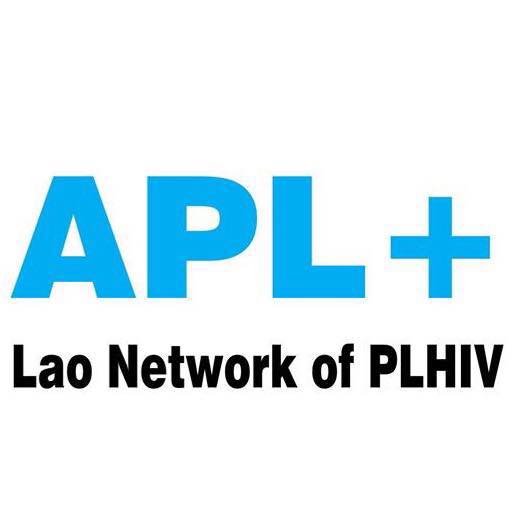Project
Empowering KADO ethnic women
-
Amount Funded
24,999 EUROProject Duration
01 Oct 2019 - 30 Sep 2020 -
-
Lead organisation
Association of People Living with HIV/AIDS host of informal group Takienglao
-
The Lao Network of people living with HIV/AIDS was established in 2003 under the umbrella of the Lao Red Cross to work with people living with HIV/AIDS nationwide with an emphasis on 12 provinces, based on decrees of Association. The LNP+ was registered and approved as a legal entity on June 28, 2012, as the Association of People Living with HIV/AIDs Network (APL+). APL’s Vision is that people who are living with and are affected by HIV/AIDS have a better quality of life and that all PLHIV have equal rights in society and can live without stigma and discrimination. While the Association has got its empowerment grant for this project, they serve as the host of informal group Takienglao.
-
Organisation
The Lao Network of people living with HIV/AIDS was established in 2003 under the umbrella of the Lao Red Cross to work with people living with HIV/AIDS nationwide with an emphasis on 12 provinces, based on decrees of Association. The LNP+ was registered and approved as a legal entity on June 28, 2012, as the Association of People Living with HIV/AIDs Network (APL+). APL’s Vision is that people who are living with and are affected by HIV/AIDS have a better quality of life and that all PLHIV have equal rights in society and can live without stigma and discrimination. While the Association has got its empowerment grant for this project, they serve as the host of informal group Takienglao.
-
Project
The project titled Empowering KADO ethnic women develops a culture and partner self-support group to promote local ownership by using participatory and community dialogue methods;competency-based strengthening of capacities at village level; strengthening and empowering existing community structures and systems including tackling the underlying and immediate causes of gender-based violence; health and nutrition insecurity with approaches geared to behaviour change and skills acquisition at the core of its interventions. The project provides community system strengthening for gender, health and nutrition-sensitive support while facilitating access of ethnic women groups to quality services in 5 villages in Saravanprovince. The project also maps out gender-based violence, health, and nutrition-sensitive support services available and key stakeholders in the target village to design a participatory needs assessment to be conducted in 10 target villages. This project is jointly developed by Takienglao and Saravan district partners, including mass organisation and Health district Office, and target communities addressing the needs of their communities with whom they have strong relations such as local authorities.
-
-
The project titled Empowering KADO ethnic women develops a culture and partner self-support group to promote local ownership by using participatory and community dialogue methods;competency-based strengthening of capacities at village level; strengthening and empowering existing community structures and systems including tackling the underlying and immediate causes of gender-based violence; health and nutrition insecurity with approaches geared to behaviour change and skills acquisition at the core of its interventions. The project provides community system strengthening for gender, health and nutrition-sensitive support while facilitating access of ethnic women groups to quality services in 5 villages in Saravanprovince. The project also maps out gender-based violence, health, and nutrition-sensitive support services available and key stakeholders in the target village to design a participatory needs assessment to be conducted in 10 target villages. This project is jointly developed by Takienglao and Saravan district partners, including mass organisation and Health district Office, and target communities addressing the needs of their communities with whom they have strong relations such as local authorities.
-
Empowerment self-support group for ethnic women to tackle Gender-based Violence (GBV), poor health and nutrition insecurity
Gender-based Violence (GBV), poor health and nutrition insecurity are products of a weak social system and compromised community structures. Responding to these social ills calls for a systemic approach to address underlying causes, while also looking at the immediate effects of these causes. Takienglao, hosted by the Association of People Living with HIV/AIDS (APL+) set up an intervention titled “Empowering Kado ethnic women to develop a culture and partner self-support group to promote local ownership”.
The project was jointly developed with Saravan province partners on district level, including mass organisation and district health office, and target communities. It aimed at providing community system strengthening for gender-, health- and nutrition-sensitive support, while facilitating access of ethnic women groups to quality services in 5 villages in Saravan province. Initially, it mapped out available support services on GBV, health, and nutrition, including key stakeholders, followed by a participatory needs assessment to be conducted in the villages. The project then trained volunteer leaders on tackling GBV, health and nutrition by adopting a community-led dialogue model. These individuals then supported women self-support groups to conduct interventions on GBV, health and nutrition mitigation.
To address the needs of communities and with whom they have strong relations, including local authorities, the project used:
- participatory and community dialogue methods;
- competency-based strengthening of capacities at village level;
- strengthening and empowering existing community structures and systems to tackle the underlying and immediate causes of GBV, poor health and nutrition insecurity; and
- approaches geared to behaviour change and skills acquisition.
In the course of the project, nutritional standards improved and mothers prepared congee, vegetables, and other highly nutritious foods for their children. Women who in the past were unable to express themselves were empowered to express their dissatisfaction with the related partners on nutrition issues. The rate of serious malnutrition among the villages lowered from 3/1,23 percent in 2018 to 1/0,39 percent in 2019.
Furthermore, Takienglao was able to transform from an informal group to an official association registered with the Ministry of Home Affairs. In terms of institutional capacity building, the capacity of Takienglao staff to build networks and linkages was enhanced, enabling them to manage participation and have meaningful exchanges with other organisations.
Additional resources about the project:



